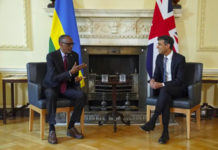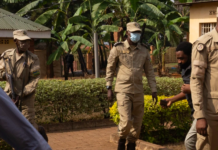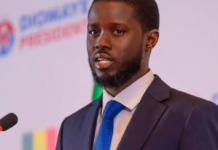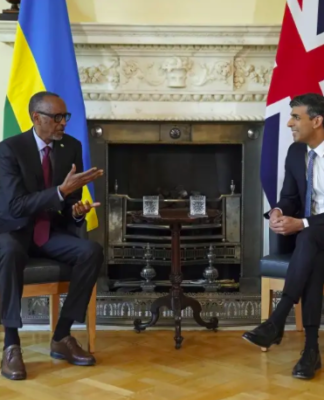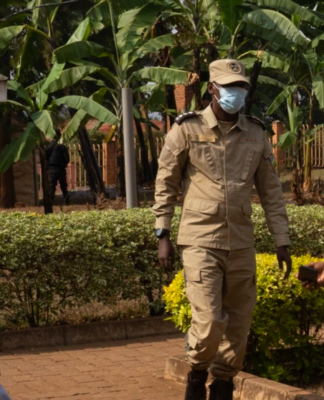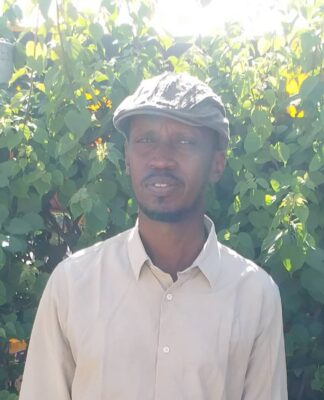Allowing Rwanda and particularly General Paul Kagame to host the CHOGM 2020 will only serve as a declaration of the Commonwealth’s indifference to human rights concerns.
Baroness Patricia Scotland
Secretary General
Commonwealth Secretariat
Headquarters Marlborough House
Pall Mall London SW1Y 5HX Email: [email protected]
April 2, 2020
Dear Secretary General,
Subject: Rwanda as the host of CHOGM 2020
This letter follows earlier complaints made by different organisations and individuals about the unsuitability of Rwanda as a host of CHOGM 2020 due to its violation of the core values of the commonwealth particularly the respect for political and civil rights. In the absence of any public statement by Commonwealth secretariat about a change of mind on the matter, we would like to reiterate that your decision to nominate Rwanda to host CHOGM 2020 is a gross contradiction to the Commonwealth’s core values and principles.
The Rwandan regime continues to face allegations of human rights violations that are of an extremely serious nature. There are no better reliable sources than the United States Government, the biggest democracy and key ally of the Rwandan government, Human Rights Watch, Amnesty International, UN Human Rights Council and Freedom House.Powered by wordads.co
The latest US government report on human rights for the year 2019, highlights among other abuses “unlawful or arbitrary killings by state security forces; forced disappearance by state security forces; torture by state security forces; arbitrary detention by state security forces; political prisoners; arbitrary or unlawful interference with privacy; the worst forms of restrictions on free expression, press, and the internet, including threats of violence against journalists, censorship, website blocking, and criminal libel and slander laws; substantial interference with the rights of peaceful assembly and freedom of association, such as overly restrictive nongovernmental organization (NGO) laws; and restrictions on political participation; criminal violence against women and girls, which the government took insufficient action to prevent or prosecute.” As the US report of 2017 point out the restrictions on freedom to participate in the political process denies the Rwandan citizens “the ability to change government through free and fair elections”.
Freedom House report 2020 considers Rwanda as no free country with a score of 22% in terms of political and civil rights.
For ease of reference we shall highlight the most salient cases of persistent gross human rights violations in Rwanda for the past 26 years. They are widely documented by Human Rights bodies, despite Rwanda’s repeated denials. The UN High Commissioner for Human Rights has always named Rwanda among top 10 countries in the world that have gone unpunished for intimidation and repression against critics.
President Paul Kagame and the ruling Rwandan Patriotic Front (RPF) continue to exert control over political landscape in Rwanda, as political opposition leaders have been intimidated, silenced, arrested, killed or forced into exile. The ruling political party – RPF controls legislative assemblies i.e. Parliament and Senate, through sham elections and partisan appointments. Therefore, President Paul Kagame was able to win an election with a score of 98.8 percent of the vote in the 2017 presidential elections, only possible in totalitarian states. In this respect, the ruling party was able to force constitutional change that allows President Paul Kagame to continue to rule till 2034. For all intents and purposes this was a constitutional coup which should have called for sanctions from the commonwealth.
The Rwandan government continues to limit the ability of civil society groups, the media, international human rights organizations, and political opponents to function freely and independently or to criticize the government’s policies and practices. They are constrained particularly by articles 194 and 204 of the penal code under which criticising government is construed as harmful propaganda to tarnish the image of the country abroad or causing uprising or unrest among the population.
The government appears to use a broad strategy to spread fear to enforce its repressive orders and deter any resistance to government dictates. For example, between April 2016 to March 2017, State security forces in the Western Province summarily killed at least 37 suspected petty offenders, including stealing a goat or a bunch of bananas. The regime continues to arrest and detain people in unofficial military detention centres, where scores of detainees have been tortured.
In July 2018, the United Nations Subcommittee on Prevention of Torture (SPT) cancelled its visit to Rwanda, due to a lack of cooperation from Rwandan authorities, making it the first time in 11 years the SPT would cancel a visit. This followed a suspension of a visit in October 2017 due “series of obstructions imposed by authorities”.
The political transition that Rwanda begun after the genocide has, instead of leading to democracy, resulted in the legitimization and consolidation of authoritarian rule. Rwanda is now a very authoritarian regime with a façade of a democracy. As the report of the Commonwealth Human Rights Initiative (2009) rightly points out, “the regime uses the constitution opportunistically as a façade, which hides the exclusionary and repressive nature of the regime; relies on power structures that sometimes run parallel to, and sometimes cross-cuts the formal government and in which the army plays a central role”. Some political analysts have described Rwanda as an “army with a state” rather than a state with an army.
Rwanda holds regular elections, but their outcome is pre-determined because of the legal, administrative and physical obstacles that the RPF has put in place to deny opposition its constitutional right to get to power. There is no meaningful competition for political power between the RPF and genuine political opposition parties and thus no real opportunity to change the government through free and fair elections.
Elections are systematically manipulated and heavily rigged by the RPF in order to ensure a landslide victory. To create a semblance of a broad-based government and Parliament the RPF is usually compelled to “doctor” the results in order to give the satellite or proxy parties enough votes to meet the threshold required for representation in Parliament.
After years of threats, intimidation, mysterious deaths, and high profile, politically motivated trials, few opposition parties remain active or make public comments on government policies. For example, the openly active party in Rwanda, Forces Démocratiques Unifiées (FDU)-Inkingi) has paid a heavy price in terms of the highest toll of arrests, forced disappearances and assassinations. Its former President Mrs Victoire Ingabire Umuhoza, was sentenced to 15 years jail after a political trial. Even though she was released under a presidential pardon she is still being harassed by the Rwanda investigation Bureau through constant summons for interrogation about her political life. During the 2019 year alone two members were murdered, and one disappeared in circumstances that led many to believe it was the work of secret services. Mr Anselme Mutuyimana was murdered in March 2019 and Syldio Dusabumuremyi stabbed to death in September 2019. Eugène Ndereyimana, also a member of FDU-Inkingi, was reported missing on 15 July 2019, after he failed to arrive for a meeting in Nyagatare, in Rwanda’s Eastern Province. Boniface Twagirimana, the party’s 1st Vice President mysteriously “disappeared” from his prison cell in Mpanga, southern Rwanda, in October 2018 and is missing up to this day. Several party leaders are still languishing in prison.
Any person suspected of being in touch with members of RNC party outside the country is accused of collaborating with a terrorist organisation.
Opinion leaders from the Tutsi survivors of genocide who have tried to express views different from the government have been put in jail, have been killed or forced into exile. In an open letter to President Kagame in July 2019, presidential hopeful Diane Rwigara, a survivor of genocide too, gave a list of more than 40 survivors of genocide suspected of having been killed by the regime.
– Ms Diane Rwigara, presidential hopeful in 2017 elections, her sister Anne, and their mother were arrested in September 2017. They were charged with “inciting insurrection or trouble among the population” because they had criticised the government.
– Mr Gilbert Mwenedata, another presidential hopeful in 2017 elections, a survivor of Tutsi genocide, was forced to flee the country for fear of reprisals after the elections.
– In February 2020: Barafinda Sekibubo Fred a presidential hopeful in 2017 elections was taken to a mental hospital by Rwanda Investigation Bureau (former CID) after showing what the police consider to be symptoms of mental health problem. In an interview one local TV channel he raised questions as to why people including those who were part of the government are fleeing the country when there is no war in Rwanda and why people are surprised and run to tell the President that there are people fighting the government. The family (wife and 10 children) fear that he could be injected with harmful substances in the psychiatric hospital and end up having mental problems.
– Deo Mushayidi President of PDP-Imanzi and Dr Theoneste Niyitegeka former leader of MDR are still locked up.
– Kizito Mihigo, Rwanda’s most popular and beloved gospel singers, 38-year-old, survivor of Tutsi genocide, was found dead at a police station in the capital, Kigali, on Monday, 17th February 2020. It is an open secret that it was a murder case carried out by Rwandan security services.
– After the assassination of Kizito Mihigo, opposition politician Victoire Ingabire noted, « I was in prison and spent eight years and when I was released and I thought the government of Rwanda was ready to open up the political space, but one month later, our vice president disappeared, four months later my assistant was killed, in July 2019 our representative in eastern province disappeared, and this year our national coordinator was murdered. Today is Kizito, I think tomorrow will be me, or Bernard Ntaganda or someone else in the opposition.”Powered by wordads.co
Repression Abroad
In May 2011, Scotland Yard warned two prominent Rwandans living in Britain, Mr Rene Mugenzi and Jonathan Musonera and warned them that it had reliable intelligence that Rwanda’s government poses an imminent threat to their lives.
– In September 2019, South Africa’s National Prosecution Authority issued arrest warrants for two Rwandans accused of murdering Rwandan critic Col. Patrick Karegeya, who was found dead in his hotel room in Johannesburg on January 1, 2014.
– South Africa’s special investigative unit said in written testimony that Col Patrick Karegeya’s murder and attacks on Rwanda’s former army chief of staff Gen. Kayumba Nyamwasa “were directly linked to the involvement of the Rwandan government.”
– In October 2019, a Financial Times investigation revealed that Israeli software developed by the NSO Group was used to spy on political dissidents and critics living abroad. The spyware targeted individuals through WhatsApp calls and allowed hackers to access personal data on the phone, such as messages and location.
– Australia’s ABC uncovering allegations of a complex web of Rwandan spies living within the suburbs, creating a culture of fear among the refugees who had escaped that nation in pursuit of a safer life. ABC titled the documentary “Spies in our suburbs, unearthing an alleged shadowy network of spies and their efforts to silence dissent.” Expats and Rwandan refugees in Australia say silencing critics and suppressing support for opposition parties in exile are among the top priorities of the Rwandan Government.
– In 2019, hacking attempts, surveillance and intimidation, the Rwandan government has been accused of putting pressure on opponents and journalists established in Belgium, Le Soir and De Morgen reported on 22nd November 2019. Belgian National security “confirms Rwandan intelligence services are actively engaged in Belgium attempting to weaken what is perceived as a political threat from the opposition” to Paul Kagame’s regime. The justice minister confirmed these allegations in October 2019. Peter Verlinden, a former VRT journalist, and his Rwandan wife Marie Bamutese have been used as an example of the victims of such practices, Belga reports. The couple says they have been threatened since 2015, following the publication of their book concerning violence in eastern DR Congo.
Freedom of Expression
Years of regime interference, repression, incarceration and state sponsored assassinations have left civil society in Rwanda very weak, leaving Rwandan human rights organizations largely unable to publicly document violations by state agents.
While the law guarantees freedom of the press, the media remains tightly controlled by the government. Media outlets are either state-controlled, co-opted or constantly under siege. Most journalists are unable or unwilling to engage in investigative reporting on politically sensitive issues and rarely criticize government policies, because of intimidation, threats, and prosecutions. They risk arrest under a variety of restrictive laws and can face long jail terms if convicted. Many have fled the country to avoid persecution and reprisals, but even in exile Rwandan journalists have experienced intimidation and even death like Charles Ingabire who was shot in Kampala – Uganda. This has created a culture of fear among journalists and has led to widespread self- censorship.
The Government also intimidates international journalists, for example BBC Kinyarwanda service remains suspended since 2014. The regime censorship of internet content has increased in recent years. Several independent or opposition-aligned news outlets abroad have remained inaccessible in the country, especially those website and blogs which question human rights excesses and regime policies.
We urge the Commonwealth to re-consider Rwanda’s suitability as a host for CHOGM 2020. The Commonwealth secretariat must revisit the conclusions of the Commonwealth Human Rights Initiative delegation to Rwanda in 2009 on the human rights situation in Rwanda and examine the deterioration of the human situation since that visit. It will realise that during the last 26 years the Rwandan regime has demonstrated that it is unwilling to manage societal demands without resorting to violence and coercion. By providing space for Rwanda and particularly General Paul Kagame to host of CHOGM 2020 will only serve as a declaration of the Commonwealth’s indifference to human rights concerns. It will be construed as endorsing the regime over its role in egregious human rights violations and tyranny.
It is very clear that persuasion alone cannot bring the Rwandan regime to behave in a civilised manner. The commonwealth should be able to set SMART objectives for the Rwandan regime to implement the core values of the commonwealth as pre-condition for holding the commonwealth summit in Kigali- Rwanda. The Rwandan regime must show practical steps it will make to restore democracy, observe human rights observance and good governance.
The Commonwealth Secretariat should set benchmarks for Rwanda including:
- Fully restore the rule of law;
- Lift restrictions on the enjoyment of all fundamental freedoms;
- Respect the separation of powers i.e. the independence of the three branches of government;
- Institute effective mechanisms to protect journalists, civil society groups and human rights defenders;
- Allow full and credible international investigations into all allegations concerning violations of international humanitarian law in the country;
- As a matter of urgency allow an immediate and independent enquiry into the death of Mr Kizito Mihigo.
Signatories:
- Laurent Munyandilikirwa, Président de l’Observatoire des Droits de l’homme au Rwanda (ODHR) ;
- Emery Nshimiyimana, Secrétaire Général de la Fondation IBUKABOSE-RENGERABOSE, Mémoire et Justice pour tous ;
- Jean Marie Ndagijimana, Coordinateur du Comité pour l’Unité, la Paix et la Réconciliation au Rwanda (CUPR) ;
- René Mugenzi, Coordinateur de Global Campaign for Rwandans’s human rights (GCRHR);
- Joseph Matata, Coordinateur du Centre de Lutte contre l’Impunité et l’Injustice au Rwanda (CLIIR);
- Theobald Rutihunza, Président du Réseau International pour la Promotion et la Défense des Droits de l’Homme au Rwanda (RIPRODHOR) ;
- Robert Mugabowindekwe, President de JAMBO asbl ;
- Callixte Kanani, Coordinateur du Comité de Suivi de la Problématique des Réfugiés Rwandais (CSPR) ;
- Aloys Simpunga , Initiative HUMURA ;
- JMV Nyirimbirima, Chairperson the Global Voice of Rwandan Refugees (GVRR)
- Stany Rwandarugari, Rwandan Platform for Dialogue, Truth, and Justice (RDTJ)
- Marcelline Nyiranduwamungu, Présidente du Réseau international pour la Démocratie et la Paix (RifDP);
- Pascal Kalinganire, General Coordinator of the Organization for Peace, Justice and Development in Rwanda and Great Lakes Region (OPJDR);
- Pierre Claver Nkinamubanzi, Président du Congrès rwandais du Canada (CRC);
- Nelson Gatsimbazi, Rwandiska föreningen för mänskliga rättigheter (RFMR);
- Rugema Kayumba, Norway Sub Sahara Africa development organisation(NSADO);
- Celestin Muhindura, President of Rwanda National Forum (RNF);
- Gilbert Mwenedata, Président de l’initiative du Peuple pour l’Alliance Démocratique (IPAD) ;
- Emmanuel Mugenzi, Coordinator in charge of political matters, Rwandan Alliance for the National Pact (RANP-Abaryankuna) ;
- Jean Damascène Munyampeta, Secrétaire Général du Pacte Démocratique du Peuple (PDP- IMANZI) ;
- General Emmanuel Habyarimana, Président de la Convention Nationale Républicaine (CNR- Intwari) ;
- JABO AKISHULI, Secrétaire Exécutif, UNITED FREEDOM FIGHTERS (UFF- INDANGAMIRWA);
- Jerôme Nayigiziki, Coordinateur, RNC-Ihuriro ;
- Jean Baptiste Ryumugabe, Secrétaire Exécutif PSI-Imberakuri ;
- Etienne Masozera, Président AMAHORO-PC ;
- Justin Bahunga, Président FDU-INKINGI;
- Nadine Claire Kasinge, Présidente ISHEMA PARTY;
- Anastase Gasana, President Democratic Rwanda Party, DRP-ABASANGIZI.
References/Key reading notes
https://apnews.com/a97d40a146284383a717aa2ec42eb39b
https://donordirectaction.org/2012/09/dr-denis-mukwege-addresses-un-on-sexual-violence-in- drc/
https://eastafricamonitor.com/why-are-the-political-killings-and-disappearances-under-paul- kagame-being-ignored/
https://edition.cnn.com/2019/12/24/africa/rwanda-pastor-daughter-treason-charges/index.html
https://newint.org/features/2004/05/01/congo
http://news.bbc.co.uk/1/hi/world/africa/6131516.stm
https://reliefweb.int/report/burundi/plundering-dr-congo-natural-resources-final-report-panel- experts-s20021146
https://rwandansrights.org/un-special-rapporteur-findings-on-rights-to-freedom-in-rwanda-are- unfortunately-characteristics-of-an-oppressive-regime/
https://abc.net.au/news/2019-08-25/spies-in-our-suburbs-alleged-spy-web-silencing- rwandan-refugees/11317704
https://aljazeera.com/indepth/features/2016/01/blood-minerals-profits-conflict-drc- 160118124123342.html
https://amnesty.org/en/countries/africa/rwanda/report-rwanda/
https://amnesty.org/en/documents/afr47/1600/2019/en/
https://atlanticcouncil.org/events/past-events/nobel-peace-prize-laureate-on-sexual- violence-in-the-drc
https://brusselstimes.com/all-news/belgium-all-news/79862/belgium-a-playground-for- rwandan-spies/
https://cfr.org/blog/alongside-real-progress-kagames-human-rights-abuses-persist
https://dw.com/en/rwanda-gospel-singer-kizito-mihigos-death-likely-a-political- assassination/a-52463272
https://dw.com/en/rwandas-opposition-rattled-by-killings-and-disappearances-of- members/a-50596049
https://hrw.org/news/2012/09/11/dr-congo-m23-rebels-committing-war-crimes
https://hrw.org/news/2013/02/05/dr-congo-war-crimes-m23-congolese-army
https://hrw.org/news/2015/08/27/icc-trial-bosco-ntaganda-alleged-crimes-democratic- republic-congo#2
https://hrw.org/sites/default/files/reports/burundi0904.pdf
https://hrw.org/world-report/2020/country-chapters/rwanda
https://independent.co.uk/news/uk/crime/rwandan-assassin-sent-to-kill-dissidents-in-uk- 2286712.html
https://iol.co.za/news/opinion/death-in-custody-of-rwandas-kizito-mihigo-reminiscent-of- neil-aggett-43672971
https://monitor.co.ug/News/National/Rwanda-makes-3-more-demands-ahead-of- meet/688334-5462902-9ne2ju/index.html
https://ohchr.org/EN/Countries/AfricaRegion/Pages/DRCUNMappingReport.aspx#
https://telegraph.co.uk/news/2019/09/24/rwandan-opposition-leader-third-killed-single- year/
umurage.org/featured-legacy-makers/the-man-who-repairs-women

